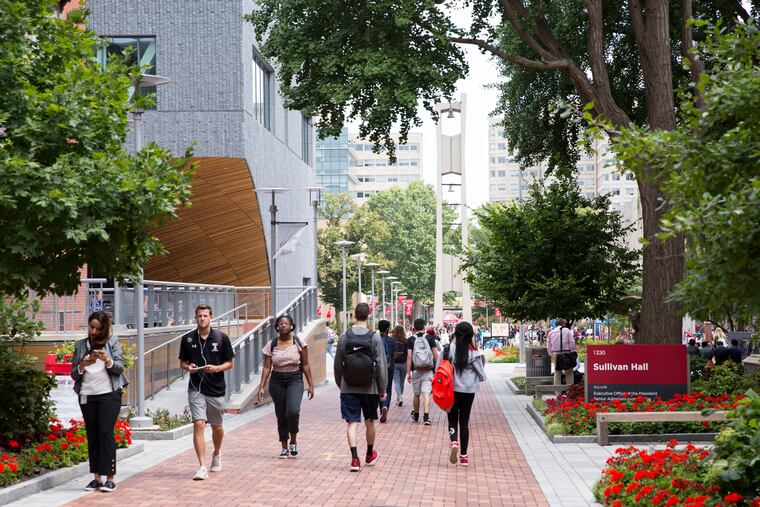A pilot program at Temple offers 1,000 free meals to hungry students
Temple senior AaronRey Ebreo helped start the program. He and Sara Goldrick-Rab, a Temple education policy professor and expert on student hunger and homelessness, hope the pilot will lead to a larger program under which students can donate meals they don’t need to peers who do.

When he was a freshman at Temple University, AaronRey Ebreo began using some of the meals he didn’t need on his student Owl Card to gather nonperishable food for the city’s homeless.
Since then, hunger on and off the university’s North Philadelphia campus has remained a top concern for the senior biology major, and this semester, he successfully worked with Temple officials and Aramark, the university’s food service provider, to start a pilot program that will provide 1,000 free meals to hungry students this year.
“It just felt really surreal,” said Ebreo, 21, president of Swipes for Philadelphia, which aims to help the hungry. “I’ve been working on this since my freshman year of college. Just seeing it come to fruition was very touching to me.”
Aramark is donating the 1,000 meals, he said. He and Sara Goldrick-Rab, a Temple education policy professor and expert on student hunger and homelessness, hope the pilot will lead to a larger program under which students can donate meals they don’t need to peers who do.
Since 2010, Swipe Out Hunger, a national nonprofit, has encouraged colleges to start programs that allow students to donate unused meals. About 80 colleges currently participate, including the University of Pennsylvania, and 1.7 million meals have been donated nationally, the organization said.
“Temple University is proud to partner with Aramark and provide support to make these meal vouchers available to our students," said Michael Scales, Temple’s associate vice president of business services.
Such programs are key to fighting hunger on college campuses, Goldrick-Rab said. About 35% of Temple undergraduates were “food insecure,” or didn’t have consistent and safe access to food, according to a 2017 study by Temple-based Hope Center for College, Community and Justice, which Goldrick-Rab started. The university has since opened a food pantry, but food pantries alone aren’t enough, she said.
The donation of the 1,000 nutritious meals is a good start, she said.
Aramark has been providing philanthropic support to the Hope Center, as well as working with Swipe Out Hunger, said Karen Cutler, vice president for communications and public affairs at Ararmark.
“As a partner with several hundred colleges, we continue to recognize that food insecurity is a growing concern among education institutions,” Cutler said. “We work in partnership with each college or university to develop and support a customized plan to address the needs of students on campus, from meal swipe exchanges to food pantries and meal plan scholarships.”
Goldrick-Rab credited Temple students for pushing for the program.
“Having been at Temple for close to three years, I have been waiting for something like this to happen,” she said. “The students really did this.”
Ebreo, who also is president of Temple’s chapter of Swipe Out Hunger, said he has swiped some of his peers into the cafeteria for a meal when they were hungry and couldn’t afford to eat. His parents, he said, motivated him to help others in need.
“My dad experienced food insecurity and homelessness when he first came to America” from the Philippines, he said.
He and other students continue to help the homeless, too, he said. They have donated 1,500 pounds of food and clothing, he said.
Students who need access to the Temple meals must fill out a form to qualify. The meals will be placed on the students’ Owl Cards and can be used at both major facilities on Temple’s campus.